Quartzite vs Granite Comparison (Countertops Design Guide)
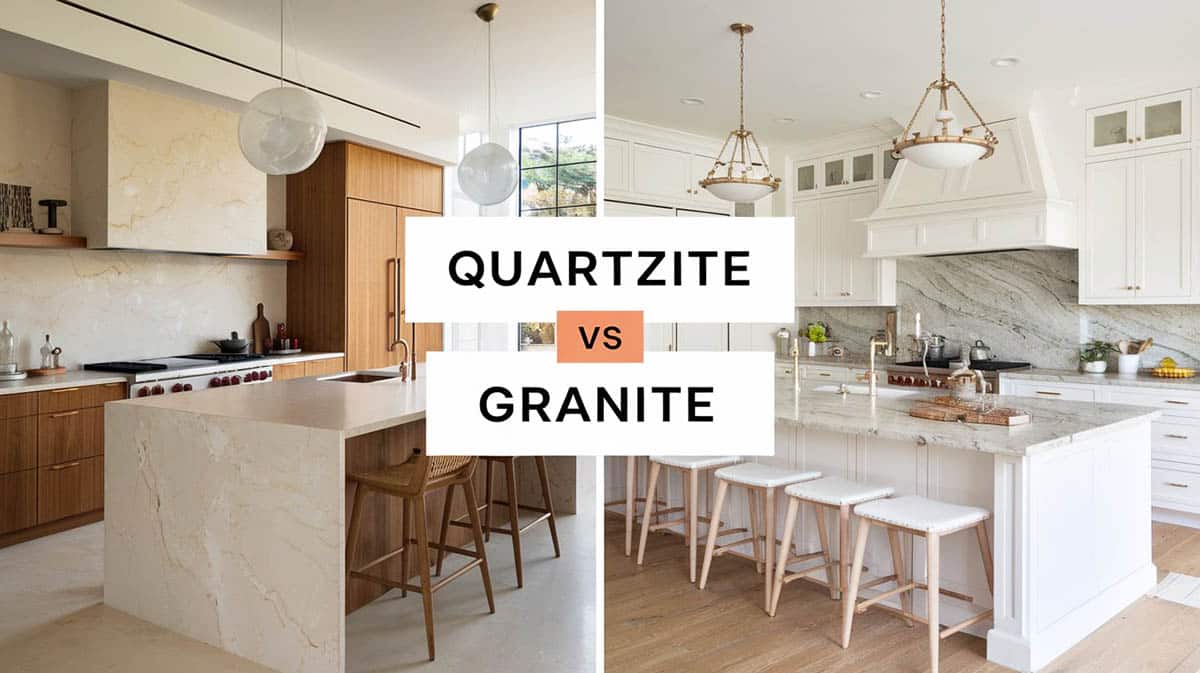
Quartzite and granite are the most popular countertop materials in the market. These natural stone materials offer many benefits and have proven to be a worthwhile home investment. However, there are several differences between the two materials. Regardless of which stone countertop you decide to go with, knowing their characteristics is extremely useful before you make your final decision as you plan and design your kitchen. Below, we take an in-depth look into the different characteristics of quartzite vs granite, along with some of their advantages and disadvantages to help you decide which one will better suit your needs, style, and requirements.
Difference Between Quartzite And Granite
Both quartz and granite are natural stones; however, they vary in terms of their material composition. By definition, Quartzite is a naturally occurring metamorphic rock that is created when a quartz-rich sandstone is subjected to high heat, extreme pressure and chemical activity of metamorphism.

Upload a photo and get instant before-and-after room designs.
No design experience needed — join 2.39 million+ happy users.
👉 Try the AI design tool now
Granite, on the other hand, is an igneous stone formed from cooled magma. It is partly composed of quartz and a mixture of other materials. The cooling process that granite undergoes allows for large crystals of the minerals to develop.
Both types make reliable countertop materials, and each of them has its own set of qualities that make them unique. Let’s take a closer look into the comparison of the different characteristics of quartzite vs granite:
Characteristics of Quartzite vs Granite
Material composition. Both quartzite and granite contain the mineral quartz, but their amount varies. There is more quartz in quartzite, in fact, it consists of 90 to 99 percent quartz grains. This is the component that they derive their strength from.
Granite, on the other hand, is made up of interlocking mineral crystals, the most common being quartz and feldspar. The material makeup of granite can vary depending on its type, which makes each piece unique. White granite, for example, has a white mineral called feldspar. Black granite is typically made up of mica, while those with light gray veins have an abundance of quartz in them.
Porosity and Moisture Resistance. Both are natural stones, meaning they are both naturally porous to some extent. However, quartzite is denser and harder than granite, which in turn makes it less porous. Quartzite countertops may require less sealing between the two natural stones.
When properly sealed, both countertops become moisture-resistant and stain-resistant. However, if you spill something on their surfaces, it is still recommended that the liquid be wiped quickly to prevent it from seeping into the stone.
Hardness. Granite is best known for being a very hard material. Quartzite, on the other hand, is composed almost entirely of the hardest material on earth, which is quartz.
The metamorphic process that quartzite undergoes recrystallizes its sand grains and the silica cement that binds them together, making it stronger and harder. On the Mohs scale of hardness (1 to 10, with 10 being the hardest), quartzite has a rating of 7, whereas granite measures around 6 to 6.5.
Durability. If durability is your determining factor for your countertop material, quartzite is the perfect material. Quartzite is known to be one of the world’s densest natural stone materials, making it an extremely durable construction material. It is more resistant to wear and tear compared to most countertop materials.
Granite, on the other hand, is known for its strength and its ability to withstand constant use as a countertop. Although strong in its own right, granite is not as durable as quartzite — if a heavy object falls on it, the countertop may chip or break, especially at the corners. However, both materials have incredible resistance to heat. They can withstand hot kitchen materials like pots or pans placed on their surface.
Both materials do not get damaged easily and are highly reliable, but between the two, quartzite has a slight edge in durability because it is relatively harder.
Appearance and beauty. One of the best benefits of granite and quartzite is their distinct beauty. Being natural stones, you can be sure that no two slabs are the same and the patterns are unique.
Quartzite is characterized by a glassy texture and a swirling vein pattern that gives it a strong resemblance to marble. Its luxurious appearance makes it one of the most highly desired countertop materials on the market. Granite, on the other hand, usually has a speckled appearance with different pattern variations.
Large crystals and small flecks of minerals usually highlight the stone’s surface. Some granite styles can also give you the look of other natural stones like marble.
When it comes to appearance, it all comes down to what style you envision your kitchen to be. If you want something elegant and luxurious, quartzite is your best bet. Quartzite countertops are also the perfect option for neutral-toned kitchens.
Alternatively, if you want variety, granite offers more styles to choose from. It fits in a wide range of kitchen designs, whether traditional or contemporary. It is also easy to find granite that can match different color schemes.
Color Variation. Quartzite can be typically found in lighter shades of color like white and gray, but some of its types are available in different color variations, depending on the mineral content. Because of the limited colors that they come in, quartzite is preferred in neutral-toned kitchens.
Granite comes in a wider range of colors — from shades of brown, red, green, blue, black, gray and white. The reason for the diverse color is the presence of different crystals during its formation. Aside from the myriad of colors, a single piece can have unique color combinations.
For example, the Santa Cecilia granite has a warm color palette that consists of brown, gold, beige and black. The exotic range of colors present in granite is an added advantage in terms of aesthetics because as light hits the countertop, the undertones are highlighted and a sparkling effect is produced.
Customization. Both types can be cut according to a specified size. However, customization is a bit more limited compared to artificial countertop materials. Both, being natural stones, are a bit harder to manipulate into different shapes, unlike engineered stones such as quartz, which can be molded practically into any form during production.
Countertop Maintenance. When it comes to maintenance, both countertops require pretty much the same procedures. Both countertop materials are easy to clean; in fact, you only need a cloth with warm water and soap to wipe its surface. Both are sensitive to abrasive cleaners like bleach.
Like any natural stone, both types of countertops need to be sealed and resealed once or twice per year to protect their surface from staining and to prevent liquid from penetrating into it. Sealers do not last forever, and they need to be reapplied periodically. Proper sealing will ensure that natural stone countertops can last for years. Overall, these stone countertops can stay in prime condition, provided that they are properly cared for.
Installation. Both countertops require professional installation. Natural stone countertops are very heavy and not recommended for DIY. Hiring a professional will ensure that the job is done correctly and quickly while significantly lowering the chance of potential damage occurring during installation.
Resale Value. Ultimately, having natural stone countertops can increase your home’s value. Both countertops are highly sought after, not only for their distinct natural beauty but also for the different positive qualities mentioned above, as long as you take proper care of them.
Any potential buyers will be drawn to having them as part of their home. In fact, when it comes to the resale value of natural stone countertops, homeowners typically recover 100 percent or more of their installation costs.
However, quartzite has a slight edge to granite in this category. The reason is that quartzite is a much rarer stone, compared to granite which is more commonly used in kitchen countertop applications.
Cost. Granite is a more affordable option than quartzite. You can read a more detailed overview of the pricing below.
Quartzite and Granite Cost
The price of quartzite (for the material or stone alone) ranges around $60 to $100 per square foot, but prices can go beyond that depending on the type and design of the stone. Granite is cheaper as its price starts at about $40 per square foot. Rare types of granite, which are considered to be “high end” can cost up to $100 per square foot.
Quartzite is actually more expensive than granite due to several factors, the main one being that it’s rarer. Other factors that influence its price are the location and the scarcity of the slab. Some slabs may not be readily available locally and cost more to acquire. Another significant factor is the meticulous cutting process involved in production. Quartzite slabs require special cutting tools because they are very dense and hard. Compared to other countertop materials, cutting and finishing quartzite is more difficult.
Granite and Quartzite Countertops Pros And Cons
Below are some of the advantages and disadvantages of quartzite vs granite countertops:
Pros of Granite Countertops
Offers design flexibility and versatility. It comes in hundreds of colors and patterns, giving you a lot of options to choose from. No matter what the style of your kitchen is, whether traditional, contemporary, country, or modern, you can find granite colors that will suit it.
Is a unique stone that has stunning beauty. No two granite slabs are alike, meaning your kitchen countertop will not be exactly the same as other homeowners who also have the material. In addition to its uniqueness, granite is also extremely beautiful and can render an elegant appeal to your kitchen.
Is affordable. The price of granite is less expensive compared to other natural stones like quartzite, marble, travertine, soapstone, gemstone, limestone, and onyx. despite being cheaper than its counterparts, it offers a lot of positive benefits, which makes it a very practical and reasonable choice.
Has an abundant supply and is readily available in the market. One of the reasons for granite’s affordable price is its abundant supply. It is not rare, and you can find the stone easily from many local suppliers.
Is heat resistant, scratch resistant and chemical resistant. Granite is heat resistant, which means you can place hot pans directly on it without having to worry about ruining your countertops. It is also scratch-resistant and will not get damaged by sharp objects like knives. Lastly, it is chemical resistant and will not get stained by acidic substances.
Is hard and durable. One of the most prized qualities of granite is its durability. By nature, it is a very hard material and will not get damaged easily. It can withstand daily wear and tear and can last long as long as it is taken care of.
Dropping heavy objects on it will not cause it to crack, chip, or break. You can chop, butcher, or tenderize meat, crack crabs, or pound garlic on it, and still, it won’t get damaged.
Countertops are very easy to clean. Provided your countertops are properly sealed and regularly resealed, they can be cleaned easily using a damp cloth and some warm water.
Cons of Granite Countertops
Requires periodic sealing. Unlike artificial and engineered stone countertops, these countertops need to be sealed, and this has to be redone every year to ensure that liquids do not penetrate their surface.
Failure to reseal granite countertops will make them very unsanitary because molds and other bacteria can build up on their surface once liquids penetrate the surface. This maintenance procedure also translates to additional expenses in the long run.
May not stay in style forever. Some colors of granite, specifically those that are a bit unusual, may get outdated and will not stay in style forever.
Pros of Quartzite Countertops
Is very elegant and gives out a very pristine look. One of the strongest qualities of quartzite is its sophisticated beauty; it can easily render elegance, a luxurious feel, and a pristine look to a space.
Perfectly suits contemporary and modern styles. The smooth appearance and texture match the streamlined and clean look of modern and contemporary kitchen styles. Its colors also complement neutral-toned palettes — which are commonly found in modern and contemporary interiors.
Has the look of marble – minus the drawbacks. As mentioned, quartzite has the same beauty as marble but is stronger, more durable, and cheaper.
Is very durable. Quartzite is one of the most durable natural stone countertops available. It will not get damaged easily and is a great investment because of its long lifespan.
Is fire resistant, heat resistant, and scratch resistant. Like granite, quartzite is also resistant to heat, scratching, and chemical reactions. Quartzite can withstand heat very well so you do not have to worry about damage from hot pots and pans. It will not get scratched even if you use a knife directly on it.
Is UV resistant. UV rays can cause some natural stones to fade and discolor, so you have to be careful in choosing materials for spaces that are exposed to direct, natural light. Quartzite is also resistant to UV rays, which is perfect for outdoor settings and backyard kitchens.
Is less porous than other natural stones. Compared to granite and marble, quartzite is less porous.
Is easy to maintain. You don’t need special tools and materials to clean a quartzite countertop. You can easily wipe it with a damp cloth and some warm water.
Cons of Quartzite Countertops
Comes in fewer colors. Quartzite comes in lighter and fewer colors — mostly neutral tones. The limited colors can be a bit of a disadvantage when it comes to design flexibility.
May require more tools when cutting. Because of how hard it is, these slabs require special cutting tools during installation. If you will be using normal cutting blades, it will take longer and you need to make multiple passes to cut it perfectly. It also causes wear and tear to the equipment used to cut and shape it.
Is more expensive than other natural stones. This material is more expensive than other natural stones like granite and travertine.
Is prone to “etching”. Quartzite has one very particular flaw which you can’t find in other natural stone countertops, which is “etching”. For the most part, the stone is resistant to chemical reactions; however, some slabs that have calcium carbonate react to acidic substances.
What is etching? When acidic substances come in contact with its slabs, the reaction produces surface damage, which is characterized by a dull mark on the natural stone — this is called etching. Some common household items that can result in etching include lemons, sodas, ketchup, and some cleaning products.
With mild etching, the stone slab still feels smooth. This can still be removed using polishing powder. Deep etching, on the other hand, leaves a rough feel on the surface and looks cloudy. To rectify this, you need to seek the help of a stone restoration professional.
There are preventive measures that you can take to prevent etching. The most common one is applying a stone sealant, which gives your countertop an extra layer of protection. Choosing a honed finish over a polished finish also helps because the former is less susceptible to damage, given its smooth, flat, matte texture.
Quartzite Vs Quartz Vs Granite
Quartz is another countertop material that continues to rise in popularity in the kitchen design scene. Often, quartz gets mistaken for quartzite because their name sounds very much alike. But don’t be confused because these two materials are very different.

For more information on the characteristics of quartz and its detailed comparison to quartzite, head on to our official guide of Quartz Vs Quartzite.

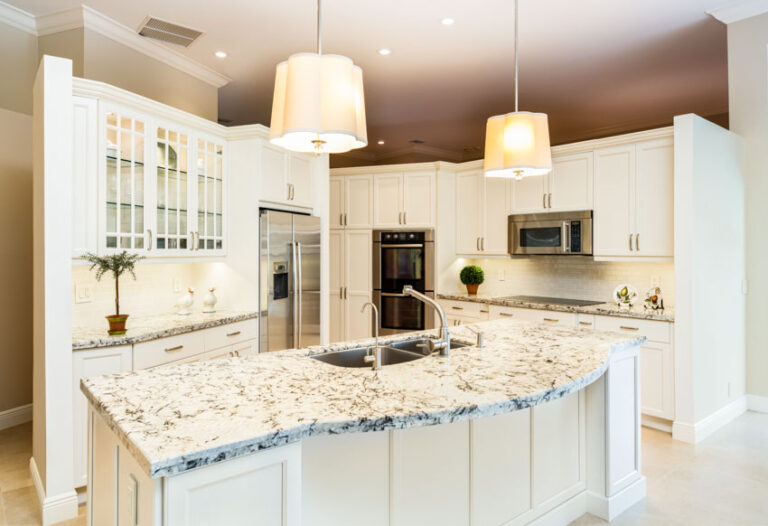
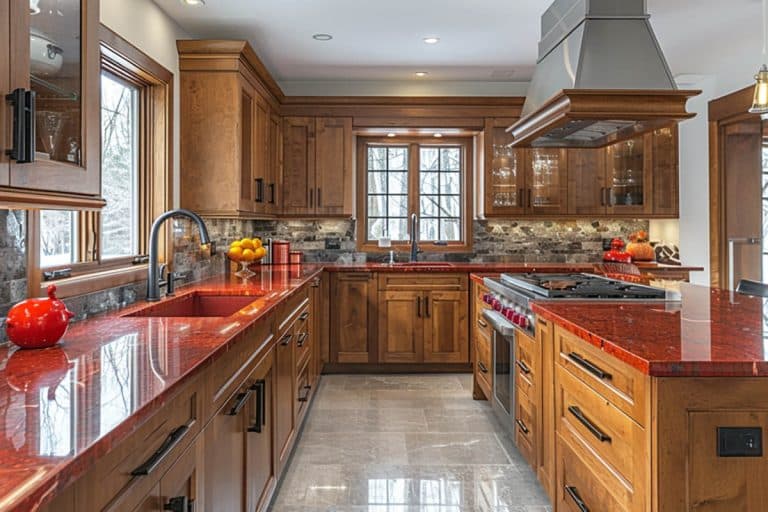
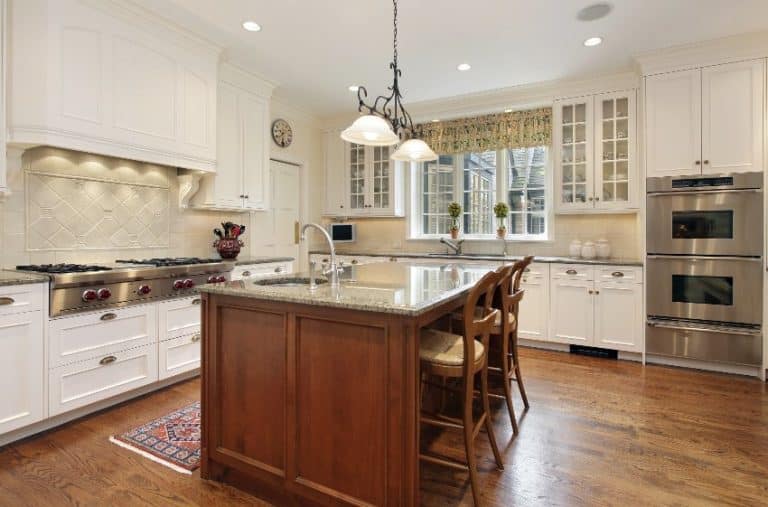
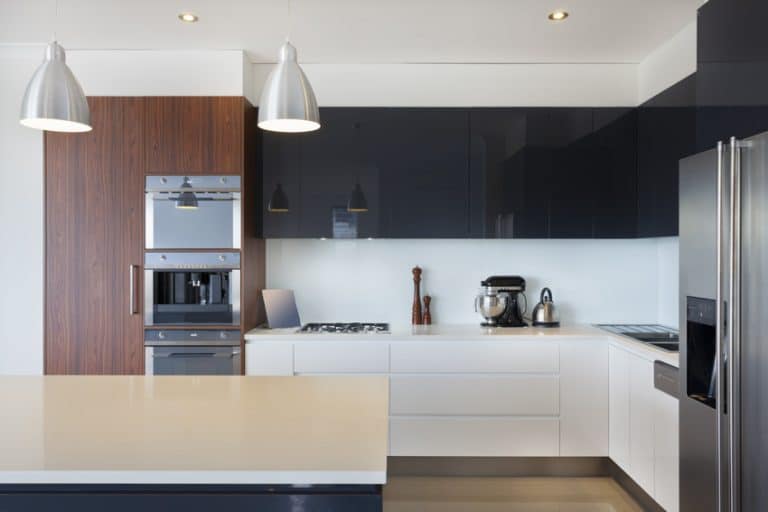
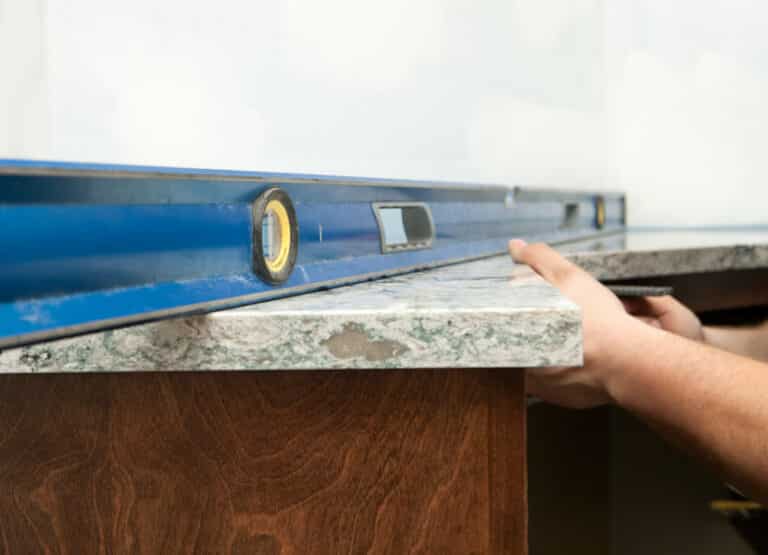
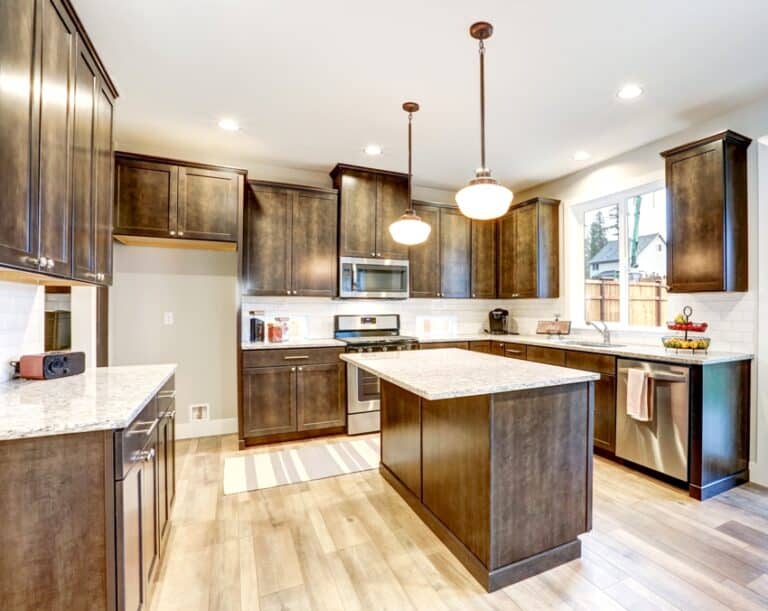
The parts of your article that talked about how resistant and durable quartzite countertops are were my favorite parts. Due to all the home-cooking we’ve been doing lately, our kitchen has taken nothing short of a beating and we’re trying to do what we can to remodel it to be sturdier. With that in mind, I’ll take your word and start looking for a quartzite countertop provider in the area so we can have a much more durable workspace.